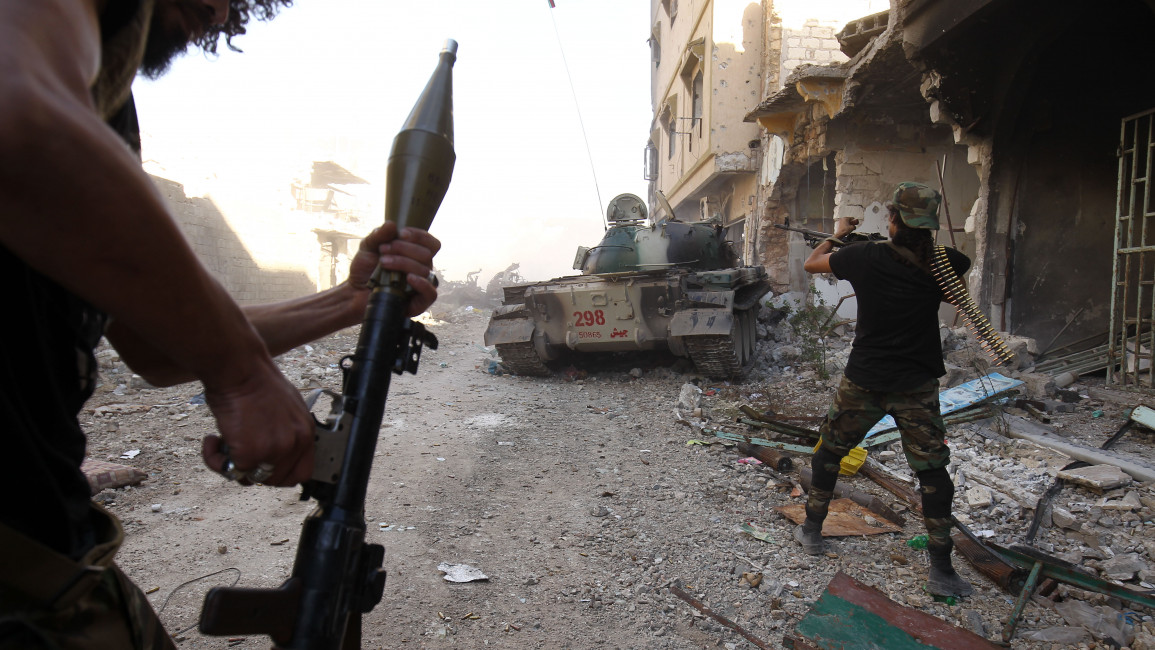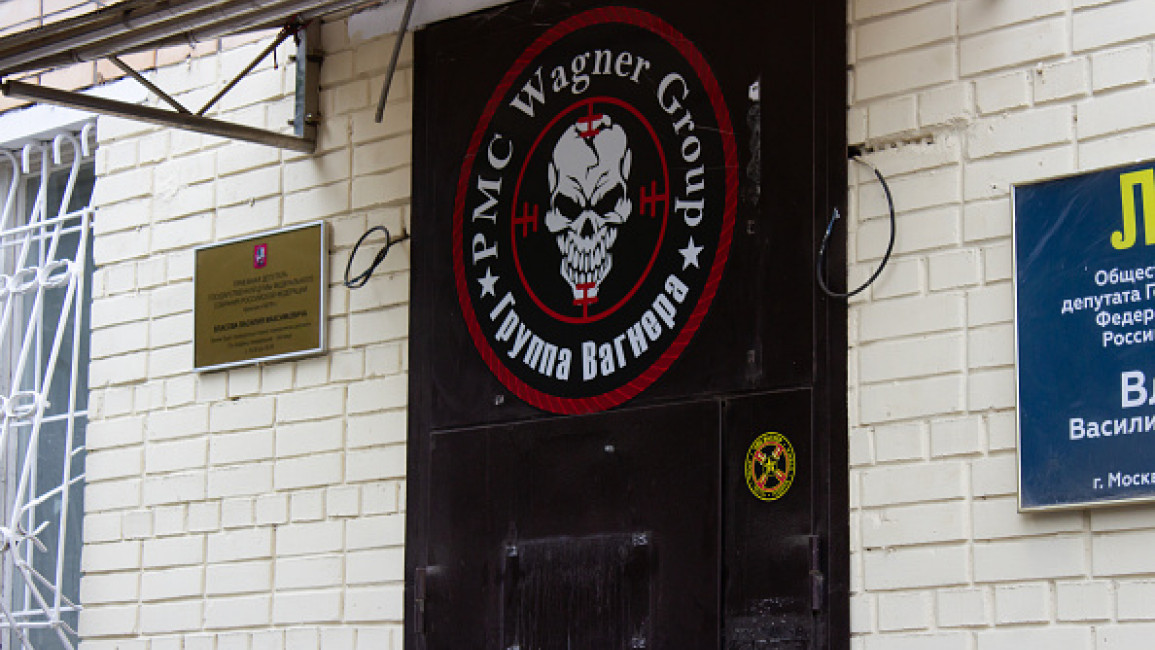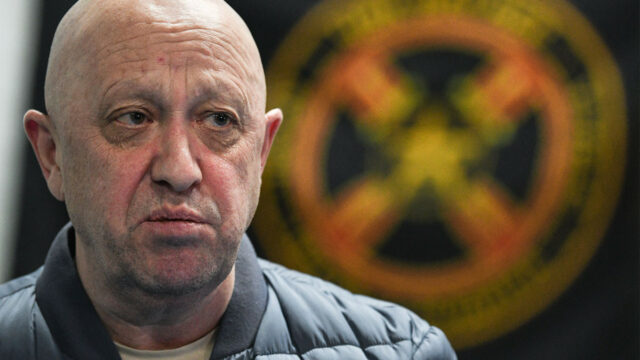The Anatomy of Prigozhin’s Mutiny and the Future of Russia’s Mercenary Industry (Part One)
Publication: Eurasia Daily Monitor Volume: 20 Issue: 111
By:
On June 23 and 24, the notorious Wagner Group—Russia`s most well-known quasi–private military company (a mercenary army)—headed by its chief, Yevgeny Prigozhin, carried out the so-called “march for justice.” Its declared goal was to teach a lesson to Russia’s corrupt and deceitful military leadership, whose blunders in managing the war against Ukraine has resulted in huge losses (Meduza, June 23). The mutiny, which ended as rapidly and mysteriously as it started, has, however, given analysts much food for thought, exposing multiple fissures in the Kremlin’s military-political architecture.
The seeds of the conflict between Prigozhin and the Russian Ministry of Defense (MoD)—which became the declared root cause of the mutiny—were sown during the Syrian and the Libyan civil wars. The first serious conflict between Prigozhin and Russian Defense Minister Sergei Shoigu occurred in 2018, when tens (if not hundreds) of Wagner fighters in Syria were decimated by an allied strike (the so-called “Deir ez-Zor Massacre”)—reportedly an outcome of disagreements between the MoD and Wagner leadership (see War by Other Means, December 18, 2019). The conflict continued in 2019, when a number of Wagnerites were hit by a strike in Libya losing dozens of battle-hardened fighters (Meduza, October 6, 2019). Later, however, the conflict was said to have been mitigated between the two sides.
Yet, this was only a mirage: The next major regional conflict involving both actors exposed deep animosity between the two—most likely fueled by financial considerations and personal grudges (Meduza, July 12, 2022). When Russia`s poorly executed invasion in Ukraine began to drain its elite forces, the Russian authorities turned to Prigozhin as an unscrupulous but effective manager, whose Wagner forces had achieved palpable results in several regional conflicts since 2014. In addition to generous financial compensation—Russian President Vladimir Putin recently confirmed Moscow’s allocation of $1 billion in annual support to Wagner and another $1 billion to Prigozhin’s business contacts (Kommersant, June 27)—Prigozhin received the exclusive right to recruit convicts (see EDM, August 18, 2022).
A combination of so-called “human wave” attacks and a larger-than-average supply of arms and munitions resulted in Wagner successes in the battles for Popasna, Lysychansk, Soledar and Bakhmut, which marked the zenith of its accomplishments in Ukraine. Huge losses of personnel (T.me/superdolgov, May 23), the “normalization” of ammunition supplies (Wagner started receiving a comparable amount of ammo to other MoD-subordinated formations) and the inability to recruit convicts (Politeka.net, May 29), which impeded Wagner from rapidly replacing fallen fighters, further strained the conflict between Prigozhin and the MoD. As such, Prigozhin, and his fighters, began to openly threaten and humiliate various Russian defense officials. Additionally, the Wagner chief presented an ultimatum that he would withdraw his forces from the frontlines if ammunition supplies were not dramatically increased and General Sergey Surovikin was not appointed as the liaison between Wagner and the MoD (T.me/Prigozhin_hat, May 7).
Meanwhile, the Chechen leadership joined the MoD-Wagner conflict on the side of the Defense Ministry (T.me/ilyashepelin, May 6). As a result, the Chechen side received an unexpected response from a semi-legendary Wagner commander (who had not spoken publicly before), Dmitry Utkin, who covertly threatened the Chechens stating that “we have known each other since the First and Second Chechen wars” (Tsn.ua, June 2); Utkin took part in the Chechen conflicts on the side of the Russian federal troops. Later, a Wagner social media account posted an image of destroyed Grozny with the unambiguous inscription, “We can repeat.”
Interestingly, Prigozhin not only accused the MoD-subordinated volunteer formations for deserting their strategic positions in Bakhmut (Meduza, May 9), he also ridiculed the Gazprom-created PMC “Torch” for surrendering its positions following its first encounter with Ukrainian forces (BBC News Russian, May 10).
However, Prigozhin’s claims and threats were seemingly not heard by his main target audience, namely Putin. Moreover, the Russian president explicitly took the MoD’s side in supporting Shoigu`s demand for all “voluntary” formations (primarily Wagner) to sign a contract confirming their subordination to the MoD by July 1 (Meduza, June 11). The Chechen Akhmad Kadyrov regiment was the first military formation to sign such an agreement (Gazeta.ru, June 12).
The public conflict, which had been gaining momentum since at least December 2022 (Istories.media, February 22), entered its most acute stage when the MoD`s ultimatum to sign a contract to de jure do away with Wagner’s uncontrollable status in the hierarchy of the Russian Armed Forces was officially declared. Understanding that compliance would likely result in the end of Wagner (as an autonomous mercenary formation) and, potentially, Prigozhin himself, on June 23, the Wagner leader posted an interview comprised of several sharp (and by the Russian Criminal Code legally punishable) statements, including (YouTube, June 23):
- The war in Ukraine happened because the Russian MoD had intentionally deceived the Russian people and Putin about Ukraine’s upcoming Western-supported offensive.
- Ukrainian President Volodymyr Zelenskyy was ready for negotiations, but the Russian leadership ignored this being confident in the success of its armed forces.
- Since 2014, the Donbas region has been plagued by officials from the Presidential Administration, with Russian authorities there acting not as saviors (as portrayed by Russian propaganda) but as occupiers.
- The real losses of the Russian army are catastrophic and far higher than the officially published numbers.
On the evening of June 23, a video (rumored to be fake and denied by the MoD) of Russian Armed Forces targeting Wagner’s military base was published. Prigozhin, accusing the MoD of supporting this action, declared his intent to punish Shoigu and Chief of the Russian General Staff Valery Gerasimov, whom he had previously accused of enabling the “genocide of the Russian people” (BBC News Russian, June 23). Henceforth, events began to unravel quickly: a large number—Prigozhin claimed 25,000—of Wagner fighters crossed the Russian border and managed to de facto seize Rostov-on-Don (approximate population of 1.1 million) with little resistance. Simultaneously, several columns of Wagner fighters moved toward Voronezh, Lipetsk and Moscow oblast (Meduza, June 24). While the local authorities and siloviki stayed practically aloof, Wagner forces destroyed several aircraft, causing the deaths of between 10 and 20 pilots (Ukrainska Pravda, June 24). Particularly mysterious was the reaction of Russia’s top-level officials: While Putin publicly appeared on June 24 issuing a rather weak statement (Sib.fm, June 24), Shoigu did not make his first public comment until July 3 (Rosbalt.ru, July 3).
The Wagner mutiny ended as rapidly and unexpectedly as it started: On the evening of June 24, Prigozhin—after negotiations with Belarusian President Alyaksandr Lukashenka—declared an end to the “march for justice.” Later, Putin`s press secretary Dmitry Peskov (Interfax.ru, June 24) and then the Russian Federal Security Service (BBC News Russian, June 27) stated that the criminal case against Prigozhin had been dropped. On June 26, Putin in another public statement offered three options for Wagner and its leadership: go to Belarus, sign a contract with the MoD and remain in the warzone, or “return back home” (Izvestiya, June 27).
Leaving Rostov, Prigozhin—who looked neither discouraged nor terrified—made two interesting statements. First, he declared that the “result [of the mutiny] was normal. We have shaken everyone up” (Info24.ru, June 26). Second, in once again mocking the Russian MoD, he said that, in Rostov, “we have demonstrated a master class. That is how February 24 should have looked” (News.rambler.ru, June 26). And with reports coming out that Prigozhin and some of his men met with Putin in Moscow on June 29, there is a good chance that this story is far from over (The Moscow Times, July 10).
How Wagner's revolt could impact Russia's influence in Libya
Analysis
Ferhat Polat
06 July, 2023
Analysis: Wagner has been a critical tool for securing Russia's geostrategic interests in Libya, but the recent mutiny has cast doubts over the group's future operations in the country.
Russia's infamous Wagner paramilitary company has been involved in various global conflicts, including those in Ukraine, the Middle East, and Africa.
However, the recent failed mutiny by the group, led by Yevgeny Prigozhin, raises questions about the future of the group's extensive network of military and commercial activities in these regions, particularly in Africa.
The failed rebellion highlighted internal issues within the Wagner group and cast doubts on their effectiveness and reliability as a paramilitary force. It could also potentially lead to a loss of trust and credibility for Russia, making it difficult for Moscow to maintain its presence and influence in Africa and other regions where they have been active.
In recent years, Russia has used the Wagner Group's services to advance its objectives while avoiding direct military engagement and maintaining plausible deniability.
"Moscow has strategically positioned itself as a significant player in Libya's political landscape through the Wagner group"
The recent fallout between Prigozhin and President Vladimir Putin, which resulted in the Wagner leader’s exile to Belarus and the subsequent dispersal of his extensive mercenary network, has cast doubt on the future stability and coherence of the entire framework. While some have joined him in exile, other members are being forced to enlist in the Russian military.
The potential withdrawal of Wagner fighters from Africa, particularly in Libya, is expected to impact Russia's geostrategic interests significantly. Russia has been strategically using Wagner fighters to bolster its presence and pursue economic and political benefits in the country. The replacement of Wagner forces in Libya, therefore, may present certain challenges.
Russia's approach to Libya is multi-faceted, as it involves a range of interests spanning geostrategic, economic, political, and military considerations. One of the primary objectives of Russia's involvement is to establish a prominent foothold in the Mediterranean region.
RELATEDAnalysisGiorgio Cafiero
“The Wagner group found Libya a significant opportunity to establish a presence in Africa, especially considering Russia's limited involvement in the continent at the time,” Andreas Krieg, associate professor of security studies at King's College London, told The New Arab.
“The accomplishments of the past five years are quite significant. Russia's presence in the region is not solely focused on expanding its influence, particularly in the security sector through the Wagner group.”
Wagner has played a crucial role in Russia's involvement in Libya. The mercenary group became involved in the Libyan theatre in 2019 by aligning themselves with militia leader Khalifa Haftar.
Their intervention was intended to provide support for Haftar's offensive against the government based in Tripoli, which is internationally recognised. A 14 month-siege of Libya’s capital ended in failure, and Wagner fighters redeployed to an array of oil facilities and nearby military bases in both central Libya and the southwest.

Despite Haftar's so-called Libyan National Army's failure to capture Tripoli, the assistance provided by Wagner fighters had been significant in maintaining control over eastern and southern parts of Libya. This control allows him to exert influence over key oil fields and infrastructure, giving him leverage in negotiations and a source of revenue to fund his military operations.
“Moscow aims to access strategic resources and establish partnerships with various companies. The system consists of multiple companies rather than a single entity interconnected within the network. In the field of logistics, they are involved in the extraction industry, which is loosely connected to the Russian state and integrated into the network of production and environment,” Krieg said.
“The events mentioned have had great importance for Russian statecraft. They marked the start of operations in Africa and established a strong presence, primarily by establishing a base in southern Libya. This base continues to serve as a crucial strategic point for expanding further into Sub-Saharan Africa.”
"Wagner's presence in Libya has directly supported its activities in the Sahel and Sub-Saharan Africa, particularly in Chad, the Central African Republic, and Mali"
Haftar’s forces, however, are somewhat fragmented. Without these foreign fighters, mainly Wagner mercenaries, the LNA as a collection of militias and mercenary organisations would be unable to maintain its hold on eastern Libya.
“The LNA is and remains a militia, comprising a network of loosely affiliated militia groups. Despite referring to themselves as an army, the reality is that these groups are diverse and revolve around Haftar, his family, and his inner circle. Their lack of training, direction, and expertise in urban combat made them reliant on external support, particularly from Wagner,” Krieg told TNA.
The Wagner Group's involvement was strategically significant, as their knowledge and capabilities, especially in urban warfare, provided an advantage to the LNA.
Without the intervention of Turkey, including the deployment of Turkish drones, it would have been exceedingly challenging for the Tripoli government to have withstood the LNA-Wagner offensive in 2020.
RELATEDAnalysisRuslan Trad
Without an alternative foreign security umbrella, the withdrawal of Wagner would pose a significant threat to Haftar's influence in eastern and southern Libya. The absence of the mercenary outfit would not only weaken Haftar’s military strength, but it would also create a power vacuum that Tripoli’s forces could potentially exploit.
Moscow has used the Wagner Group to pursue strategic goals in Libya and beyond. The objectives include Moscow's aim to consolidate its geostrategic presence in the country, including military bases across Libya, such as Jufra and Al-Khadim. These bases not only allow Russia to project power in the region but also serve as a means to counter Western influence in North Africa.
By strategically establishing a robust presence in Libya, Russia has the potential to safeguard and advance its economic and energy interests. Ensuring control over Libya's energy infrastructure is of utmost importance.
One practical approach to achieve this objective involves exerting influence over Sirte, a strategically positioned coastal city that serves as the gateway to the country’s oil fields. Since 2020, Wagner fighters have reportedly remained entrenched in and around key oil facilities in Libya, such as Ras Lanuf, Sidra oil terminals, and Sharara oil field in southwestern Libya, the country's largest, with a bpd capacity of 300,000.

Furthermore, Wagner's presence in Libya has directly supported its activities in the Sahel and Sub-Saharan Africa, particularly in Chad, the Central African Republic (CAR), and Mali. For instance, in 2022, Russia used an air base near Benghazi, called Khadim, as a logistics hub to transfer personnel and equipment to Mali.
In recent years, Moscow has strategically positioned itself as a significant player in Libya's political landscape through the Wagner group, which has been and will likely remain an important tool for securing Russia’s geostrategic interests.
Wagner fighters reportedly remain active in eastern Libya and the country's south, and as yet it's unclear whether they will integrate into the Russian armed forces or continue operating as a private military company.
However, their presence in Libya suggests that Russia is committed to maintaining its influence in the region and will continue to use the Wagner Group as a means to achieve its objectives.
Ferhat Polat is a researcher at the University of Exeter, specialising in North African geopolitics and security and focusing on Libyan affairs. He is regularly invited as a commentator on news channels. He has written a number of essays and articles on geopolitical issues, which have been published in various journals, newspapers, and digital outlets.
Follow him on Twitter: @Ferhattpol

No comments:
Post a Comment